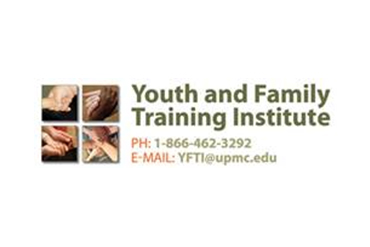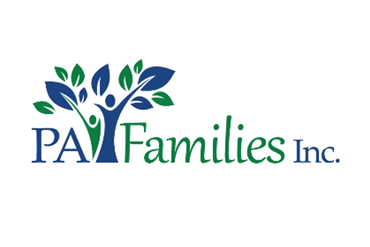GRANTS , INITIATIVES AND PROJECTS
Pennsylvania Grants Awarded by SAMHSA
PA Care Partnership Expansion and Sustainability (2021-2025)
Funding Period: August 31, 2021, through August 30, 2025
The population of focus: Children and youth under the age of 21 with or at risk of serious emotional disturbances (SED) and multi-system involvement, especially those that are in or at risk of residential placement, and their families. Grant target is four PA counties.
Overview: The Pennsylvania Care Partnership (the Partnership), which oversees the day-to-day System of Care activities statewide, will continue to build on the progress made through previous Substance Abuse and Mental Health Services Administration (SAMHSA) System of Care (SOC) grants at the state and county level.
Four counties were selected through a competitive process that included youth and family input. The new partner counties are Blair, Delaware, Greene, and Lackawanna. These counties have extensive experience working with youth with complex mental health issues, and families. The selected counties have experience developing and implementing other system change efforts and are willing to collaborate across systems, and pilot new service delivery models. Each county has proposed 1-3 possible evidence-based/enhancements to their current county service array and will work with the Partnership to develop and implement these new delivery models. The potential models include the expansion of High-Fidelity Wraparound, peer-driven case management, enhanced services for transition-age youth, and enhanced supportive living programming. Combined, these four counties will enroll a total of 300 children and youth in the longitudinal evaluation process, required by SAMHSA.
The System of Care Grant should address several infrastructure challenges, including the ongoing need to align the child-serving systems; family and youth engagement during a pandemic; ongoing challenges to provide culturally and linguistically competent services and supports; the need to develop and implement evidence-based and evidence-informed services and supports; and strengthening the roles and responsibilities of the state and county SOC leadership teams.
The overall vision for the four years of this grant and beyond is that every youth and family in the Commonwealth will be able to access and navigate a unified network of effective services and supports, which are family and youth-driven, community-based, culturally and linguistically competent, and meets their individual needs. This will be achieved by supporting the following:
- Implementation of new services and supports which are youth and family-driven,
- Providing training on System of Care at the County and State levels,
- The creation of a local System of Care Coordinators, Local Youth Leads, Local Family Leads, and Local Cultural and Linguistic Coordinators in each of the four counties working with the grant,
- Provision of Trauma-Informed trainings,
- Provision of the Youth and Young Adult and Family Road Maps,
- Providing of the Coach Approach to Adaptive Leadership,
- Providing Family Peer Support Services training and supporting the certification and funding of the service through Medical Assistance, and
- Providing Cultural and Linguistically competent training and supports.
Past Grants
PA Care Partnership Expansion and Sustainability (2017-2021)
Funding Period: September 30, 2017, through December 29, 2021
The population of focus: Youth ages birth to 21 that have serious mental health needs and are involved in child welfare or juvenile justice, especially those that are in or at risk of residential placement, and their families. Grant target was nine PA counties.
Overview: Building on the previous System of Care Grant, this award gave us the opportunity to focus our work on youth and young adults (birth to 21) and counties we are working with to work with this entire age range or a subset. We used the knowledge of our other SAMSHA grants including Garrett Lee Smith, Safe Schools/Healthy Students, Project LAUNCH, Healthy Transitions, and previous System of Care grants to work with our grant and the counties implementing System of Care. We incorporated lessons learned into a technical assistance approach by utilizing two (2) grant counties (Crawford and York) as learning communities. Additional counties were brought on including Blair, Carbon, Delaware, Greene, Monroe, Pike, and Venango who were committed to transforming services and supports by creating integrated, youth-driven, and family-driven Systems of Care values and principles. The counties utilized a variety of planning and support processes. These planning processes addressed the needs for youth with complex behavioral health needs and multisystem involvement and their families who manage or deliver person- and family-centered treatment planning. The planning process and other approved programs include High Fidelity Wraparound (HFW), Family Group Decision Making, MST- Multi-systemic Therapy, Case Management, Blended Case Management, Intensive Behavioral Health Services, and Treatment Courts.
Major Accomplishments:
- Implementation of Family Peer Support Training Model through the Family Run Executive Directors Association (FREDLA);
- Implementation of the Coach Approach to Adaptive Leadership Training and Training of Trainers;
- Implementation of the Family Road Map Training and Youth and Young Adult Road Map Training;
- Supporting the PA Parent and Family Alliance (PAPFA) (the statewide family organization);
- Implementation of Virtual Family Peer Supports through PAPAFA;
- Youth MOVE PA becoming independent of the PA Care Partnership;
- providing training and education for youth and young adults;
- updating the 11 core SOC Values;
- implementation of the evaluation and continuous quality improvement processes; and,
- outcomes data showing improvements across all child-serving systems.
PA System of Care Partnership Cooperative Agreement
Funding Period: October 1, 2009, through September 30, 2016
The population of focus: Youth ages 8-18 that have serious mental health needs and are involved in child welfare or juvenile justice, especially those that are in or at risk of residential placement, and their families. The grant's target goal was fifteen PA counties, and thirteen counties joined.
Overview: Building on the OMHSAS, Community Care, and University of Pittsburgh’s Youth and Family Training Institute’s (YFTI) child and family team process of High Fidelity Wraparound (HFW), the PA System of Care Partnership was envisioned to transform the current categorical and fragmented service delivery approach, found within the mental health, child welfare, juvenile justice, and other child-serving systems, into a comprehensive family-driven, youth guided, culturally and linguistically competent community-oriented delivery system.
Major Accomplishments: Formation of the State Leadership and Management Team (SLMT); equal youth, family, and system partner representation on the SLMT; creation of eight SOC standards; recruitment and selection of fourteen pilot counties; partnership with PA Families, Inc. to develop the family voice; beginning development of the youth voice; standardization of the HFW training, coaching and credentialing process through YFTI; implementation of the evaluation and continuous quality improvement processes; outcomes data showing improvements across all child-serving systems. During the grant, we worked with thirteen counties: Chester, Crawford, Delaware, Erie, Fayette, Greene, Lehigh, Luzerne, Montgomery, Northumberland, Philadelphia, Venango, and York.
Expansion Planning Grant
Funding Period: October 2011 through September 2012
The population of focus: Youth ages 8-18 that have behavioral health problems, are involved in multiple systems and are in, or at risk for high-cost services and/or out of home placement, and their families.
Overview: The PA System of Care Partnership engaged in a comprehensive planning process that determined how to establish systems of care in all areas of the Commonwealth. Regional Planning Groups, with the membership that paralleled the SLMT, were established to work on the system of care plans for their region. These regional plans were then consolidated into a strategic plan for the Commonwealth and specified systems changes (regulation, policy, structures) that needed to occur to have the child welfare, juvenile justice, behavioral health, and education systems operate as one for youth that has multi-system involvement, and their families.
Major Accomplishments: Development of a statewide strategic plan and social marketing plan.
Expansion and Implementation Cooperative Agreement
Funding Period: July 1, 2013, through December 31, 2017
The population of focus: Youth ages 8-18 that have behavioral health problems, are involved in multiple systems, and are in or at risk for high-cost services and/or out of home placement and their families.
Overview: The SOC Expansion Implementation Cooperative Agreement was designed to enable PA to build on the 2009 Cooperative Agreement (see above) by implementing the eight standards and implementing the strategic plan developed through the 2011 Expansion Planning Grant (see above) across all PA counties. A significant goal of the Expansion grant was to create the infrastructure needed to support youth and families.
Major Accomplishments: Nine counties (Crawford, Delaware, Fayette, Greene, Lackawanna, Lawrence, Montgomery, and York) have been funded and have received technical assistance through webinars; the Cultural and Linguistic Coordinator established and implemented in pilot counties; the annual Learning Institute has continued to grow with almost 400 participants in FY16; YOUTH MOVE PA has been established as an organization for youth and young adults across the Commonwealth; the annual County Assessment survey provides a snapshot for PA System of Care counties to determine System of Care implementation level. The 2016 survey achieved an overall score of 8 (out of 10), indicating “substantial implementation” statewide.
Other Grants
Garrett Lee Smith Youth Suicide Prevention Grant: Pennsylvania Resource for Continuity of Care in Youth-Serving Systems and Transitions (PRCCYSST) – “PERSIST”
Funding Period: June 30, 2019, through June 29, 2024
The population of focus: Children, Adolescents, and Young Adults ages 10-24
Overview: The Garrett Lee Smith (GLS) Youth Suicide Prevention Grant is a five-year federal SAMHSA grant awarded to the Office of Mental Health and Substance Abuse Services (OMHSAS) at the Department of Human Services. Using a two-tiered model, this project targets youth ages 10-24. Tier 1 is statewide and provides awareness, training, and screening activities to equip mental health professionals and the general public to increase identification and improve outcomes for youth at risk. Tier 2 works with target counties to promote systemic change to improve continuity of care between youth-serving systems for those at risk of suicide. For more information about the GLS grant please visit https://www.preventsuicidepa.org/gls4persist, which includes an informational video and infographic. You may also reach out to Rose Milani, Project Director, with any questions.
Key resources:
- Suicide Prevention Online Learning Center
- Behavioral Health Screen
- Higher Education Suicide Prevention Coalition
- PSA Contest for Youth Suicide Prevention
- GLS in PA Webpage
“Now is the Time” (NITT)-Healthy Transitions Cooperative Agreement called PA Healthy Transitions (PAHT)
Funding Period: October 1, 2014, through September 30, 2019
The population of focus: For this grant, there are three distinct populations including 16-25-year-olds at risk of developing a serious mental health condition; 16-25-year-olds who have already been identified as experiencing a serious mental health condition; and the community at large (general public)
Overview:
The purpose of the PAHT Partnership is to develop a coordinated and comprehensive approach to the provision of services and supports to address serious mental health conditions, co-occurring disorders, and risks for developing serious mental health conditions among youth 16-25 years old. Berks, Bucks, and Washington counties have been identified as PA’s three local learning laboratories and will serve as models for the other counties throughout the Commonwealth. This project is also expected to coordinate efforts with the State Mental Health Authority on the new 5% (now 10%) Mental Health Block Grant set-aside funds for the treatment of early serious mental illness (now called First-Episode Psychosis, FEP).
Major Accomplishment to Date: All three counties are operational in serving transition-age youth; data is being collected and is on schedule for achieving the stated enrollment goals; in July 2016, the second annual site visit will bring together the state-level grant employees, the participating counties, and experts in FEP for a two-day retreat facilitated by SAMHSA TA experts.
PROJECT LAUNCH- Linking Actions for Unmet Needs in Children’s Health
Funding Period: October 1, 2014-September 30, 2019
The population of focus: Children ages birth-8, their families, and pregnant women
Overview: The vision of PA Project Launch is for all children (ages 0-8), their families, and pregnant women to flourish through the benefits of a comprehensive, seamless system of promising and evidence-based approaches that promote physical, behavioral, and emotional well-being, thus enhancing school and life success. This is a partnership between OMHSAS, the Department of Health, and the Office of Child Development and Early Learning with the Allegheny County Department of Human Services. The PA Project LAUNCH pilot communities in Allegheny County are Baldwin-Whitehall, Pittsburgh, and Woodland Hills School Districts.
Major Accomplishments to Date: The biggest accomplishment to date is the multi-disciplinary and far-reaching membership of the State and Local Young Child Wellness Councils (YCWC) which includes family representation between eighteen and thirty-four percent of the entire membership. The cross-sector nature of our YCWC membership supports our work around five core strategies which include Screening/Assessment, Physical Health-Behavioral Health Integration, Early Childhood Mental Health Consultation, Enhanced Home Visitation, and Family Strengthening. Many activities and collaborations are occurring at the local level that will serve as a blueprint for other communities across the Commonwealth who desire a coordinated and comprehensive system that supports young children and their families.
Pennsylvania Safe Schools/ Healthy Students Partnership
Funding Period: October 1, 2013, through September 30, 2017
The population of focus: Children in early childhood centers, school districts, their families, and the community at large, ages 3-21.
Overview: The Pennsylvania Safe Schools/Healthy Students Partnership aims to create safe and supportive schools and communities in 3 Local Education Agencies (LEAs) and their partner Systems of Care counties (Carbon-Lehigh Intermediate Unit 21/Lehigh County, Northeastern School District/York County, PENNCREST School District/Crawford County), and ultimately throughout Pennsylvania. Our vision is to create a system whereby state and local system partners, education facilities, and family and youth partners merge existing frameworks of Positive Behavior Interventions and Supports (PBIS) and Systems of Care (SOC) into one integrated continuum of care. The goal is to establish interconnected systems of support that provide the most effective and efficient prevention, early intervention, and intervention options to promote wellness and positive mental health.
Major Accomplishments to Date: The biggest accomplishment to date has been the cross-systems collaboration, at the local levels, with our counties and schools. The shared work that is taking place in our implementation sites has advanced significantly, resulting in local selection and implementation of tiered preventive and intervening evidence-based programs and promising practices that were not a reality in those locales just 3 years ago. The outcomes of shared identification and installation of such programs and practices have shown an increase in the mental wellness of youth and family members.
PA CRISIS TEXT LINE







